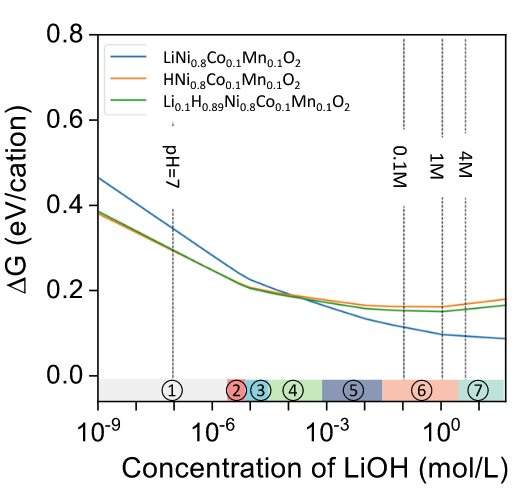Xingyu’s collaborative research with the Chen group, titled “Proton-Exchange Induced Reactivity in Layered Oxides for Lithium-Ion Batteries,” has been published in Nature Communications!
This study addresses a critical challenge in the manufacturing, storage, transportation, processing, and recycling of LiNixCoyMn1-x-yO2 (NCM, 0 < x, y < 1), the dominant cathode material for state-of-the-art lithium-ion batteries. Through an integration of experimental and computational approaches, the team reveals how protons intercalate into the layered NCM structure, triggering Li⁺ leaching and the formation of protonated NCM. This protonation process significantly disrupts the structural integrity of the material, promoting cation rearrangement and the development of impurity phases. These effects are particularly severe in NCMs with higher nickel content.
The study also demonstrates a solution-based approach to mitigate Li deficiencies in NCM materials by leveraging controlled proton concentrations and the presence of Li⁺ ions. The underlying relithiation mechanism is further elucidated through detailed materials characterization and kinetics modeling. This work provides essential insights into managing structural and compositional defects in NCM cathodes, paving the way for improved performance and stability in next-generation lithium-ion batteries.
Check out this work here.

